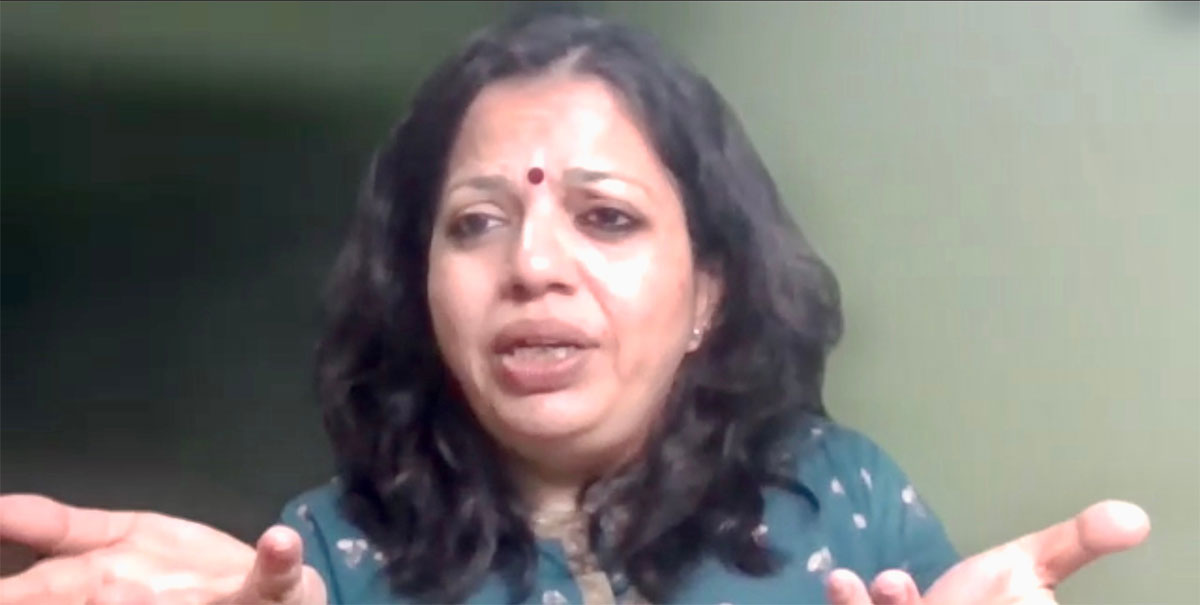
“When you do not need a particular loan or credit card, or you know that you can manage your life without that loan, don’t simply say yes to any enquiries or requests that come to you. Even if a loan or a credit card is not approved or sanctioned, just having a bunch of enquiries listed out on your credit report can alarm a lender into thinking that none of your loan or credit card requests was approved and that you may be a high-risk borrower,” advised Aparna Ramchandra, founder-director of Rectify Credit. She was speaking at a webinar organised by Moneylife Foundation.
Using real-world examples and case studies and her experience in handling credit-related issues, she effectively explained the topics of credit scores and reports and how to manage credit limits and personal finances to improve the overall credit utilisation ratio. Throughout her talk, she shared essential lessons and mistakes to avoid for a healthier financial life.
Drawing attention to the problem of financial institutions sending innumerable marketing emails or messages for “pre-approved loans or credit cards”, she advised the attendees to avoid such communication at all costs unless a loan or credit card is absolutely required. “Multiple enquiries for loans or credit reflect poorly on a credit report and can also negatively impact your score.”
Often people realise that something is wrong with their credit report only when a loan or credit card application is rejected. With an example of a financially well-settled borrower, Ms Ramchandra explained how even a tiny outstanding amount on a long-forgotten education loan can still show you as a defaulter on your credit report years down the road when you apply for a loan. In this case, although the borrower was employed in a well paying corporate job, he had just a single credit card whose dues were paid on time and no other loans. However, an unforgotten small final payment on an education loan made him a defaulter.
According to Ms Ramchandra, his first mistake was not communicating changes in residential address with the lender. Since this was a case from the early nineties, when people relied on landline numbers for contact, and very few had email addresses, the lending institution had likely sent notices to his residential address and called the landline number. When he never received such communication, he mistakenly assumed all payments against the education loan were complete.
His second mistake was not asking for a loan closure letter, no dues certificate (NDC), or no objection certificate (NOC). “People make the mistake of being satisfied with a loan closure letter when all it says is that your loan account is closed. It is like an informal receipt for services rendered. What is more important is a NDC, which is an important document that assures no dues remain outstanding with the concerned lender or financial institution,” says Ms Ramchandra.
While many are prudent with their finances, some are not as disciplined. The idea of a credit card is still difficult for some people to grasp, so they frequently max out their limits and jump at the opportunity to get a new card when a lender makes a tempting offer. Soon they have three to four credit cards all maxed out and are only making the minimum required payments every month. Naturally, this reflects poorly on their credit report, and when the time comes for a home or auto loan, their applications are rejected.
Credit cards can be a boon in emergencies when you need urgent funds, but should always be used responsibly and with care. As Ms Ramchandra explained in her talk, “A normal person who is careful with their finances should ideally be satisfied with one credit card and ensure that they pay all dues on time. Having a high credit limit does not mean you must utilise that full credit each month. Spend only what you earn and pay it off on time.”
She added, “While it is common sense for some, people still make mistakes and try to juggle different payments from different credit cards – paying for fuel from one, groceries from another, and bills from a third card. Remember, each card is different and has dues, which must be paid on time. If you are not as good with your finances, it is always better to stick with just one credit card.”
Citing other horror stories from her experience handling such issues, Ms Ramchandra explained how one should never lend our credit cards to a friend or even a family member unless one knows them or their family well. It is also important to check and read the transaction SMS messages sent to you when the card is used for purchase. Ignoring such messages could lead to a bigger problem later on if the transactions were discovered fraudulent.
The session was well attended by over 150 people across Zoom and the YouTube and Facebook channels of Moneylife Foundation. Ms Ramchandra also answered questions from the attendees on Zoom and addressed other topics about rectifying errors in a credit report and negotiating with the lender.
You can watch video recording of this session on Moneylife Foundation’s YouTube channel here…

